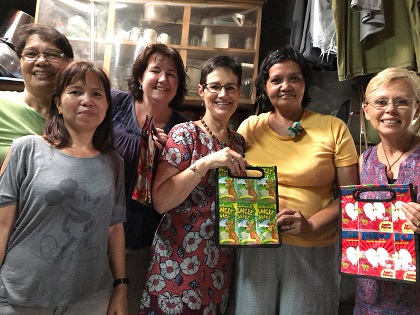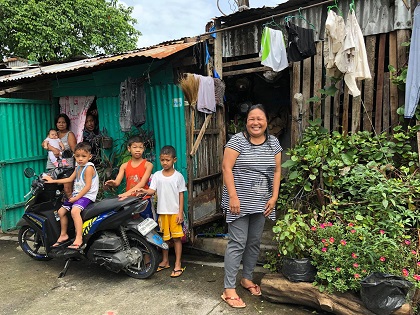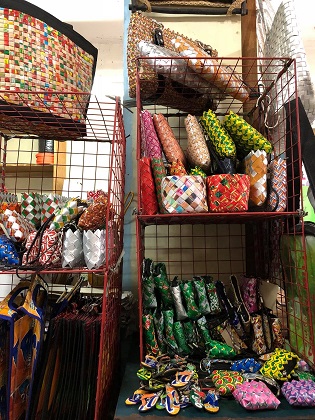Kamay Krafts Co-op started informally as a small embroidery project to give women in the slums of Manilla some extra income. Today it is an independent cooperative – controlled and managed entirely by the urban poor women working there. In many cases the money they receive is the only income they have to support their whole family.
Kamay Krafts shifted from embroidery to recycling and create beautiful bags from recycled packaging and end of run packaging. They mostly work from their homes which means that there is minimal disruption to the needs and routines of their families. They are also organized into neighborhood groups for mutual support and encouragement.
Fair Trade Downunder send second hand children’s books, maps and sheet music to Kamay Krafts. Their clever artisans use these and other recycled materials to create beautiful and unique nappy bags, shopping bags, backpacks and wallets.
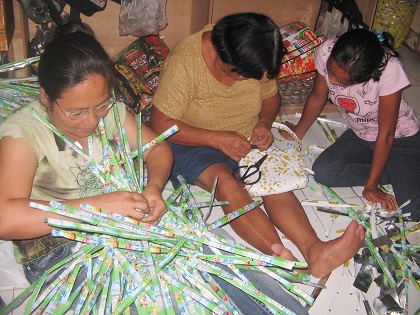
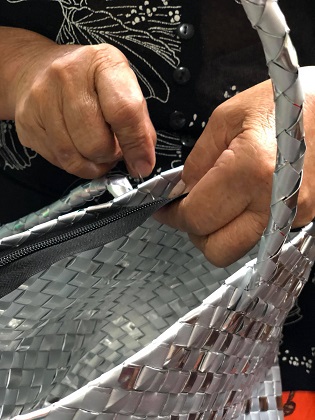
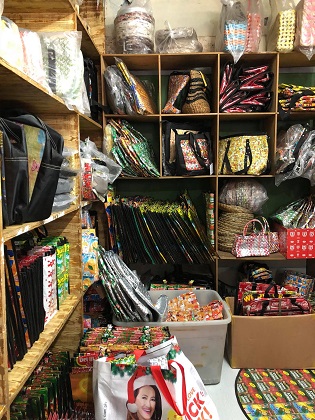
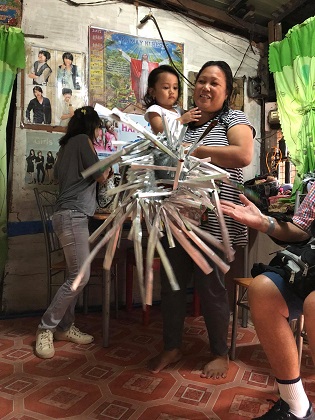
Susan Crais lives near the Payatas dumpsite in Quezon City. She has six children. Her family relies on the meager income of her husband to support their daily needs. This was until her husband lost his job and became unemployed for three years. It would have been a difficult time for them had it not been for the Cooperative. Her income from the cooperative allowed her to send all her children to school. Her eldest child is now about to graduate from college, the second one has finished high school and the rest are either in high school or grade school. With some money to spare, Nanay Susan did some repair work on their house.
Remedios Laburdo has been with Kamay Krafts for several years now. She lives with her husband who suffers from heart ailment. She is quite weak and finds it difficult to work at her age. But she has no one else to depend on. It is through her work in the Cooperative that she is able to pay for the medical needs of her husband.
Rosalinda Panti is a single mother of four. Before, she couldn’t afford to feed her children, much more send them to school. She would go to the office of Kamay Krafts, pleading that she be given work. The problem was she didn’t know how to sew. With patience and perseverance, and the assistance of the office staff, Rosalinda is happy to say that she can now provide food for her children and send them to school. “Ngayon marunong na ako manahi. Napaaral ko na ang mga anak ko.” [I know how to sew now. I am able to send my children to school.] narrated Rosalinda. “Ang laki ng tuwa ko. Nakakain na rin kami ng tatlong beses.” [I am very happy. We now eat three times a day].
By: Chona S. Sandoval
